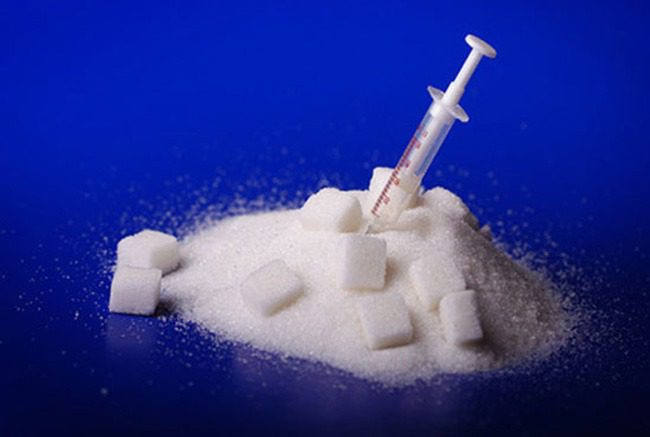Sugar Addiction
Sugar Addiction – Exploring the psychological and traumatic factors that contribute to the development of sugar addiction is essential to understanding this complex issue. By exploring these underlying causes, we can gain insight into the forces that drive individuals to overconsume sugar.
Emotional Coping Mechanism
For many individuals, sugar serves as a way to cope with challenging emotions and psychological distress. Life can be filled with stress, anxiety, and emotional pain. Sugar, with its immediate pleasurable effects on the brain, can provide a temporary respite from these emotional burdens. People turn to sugary foods as a form of self-soothing, using sugar to numb emotional pain and create a momentary sense of relief. In the absence of healthier coping strategies, sugar becomes an easily accessible and comforting escape.
Traumatic Experiences
Trauma, whether stemming from early childhood or later life events, can significantly influence the development of sugar addiction. The distressing memories and emotions associated with the trauma can be overwhelming. In an attempt to numb the pain and emotional turmoil, individuals may resort to sugar consumption as a means of self-medication and temporary distancing from their traumatic past. The calming and pleasurable effects of sugar can act as a form of self-soothing and distraction from distressing memories.
Habitual Behavior
Sugar addiction often involves the formation of deeply ingrained habits. Individuals who have experienced trauma or stressful events may use sugar as a habitual response to cope with these situations. This learned behavior can persist into adulthood, even when the immediate causes of stress have subsided. The ritual of consuming sweet foods itself becomes a coping mechanism, further reinforcing the addiction.
Emotional Attachment
In some cases, sugar addiction may be linked to emotional attachment and a deep-seated need for comfort. Individuals who experienced a lack of emotional support or care in their formative years may develop an emotional attachment to sweet foods. Sugar becomes a substitute for the emotional care that was missing in their lives, creating a bond that is difficult to break.
Psychological Cravings
The intense cravings felt by sugar addicts may be intricately linked to psychological factors. These cravings are not just physical; they are often emotionally charged. The anticipation of gratification, the temporary escape from emotional pain, and the habit of consuming sugar can create a cycle of psychological addiction that is difficult to break.
Why Is It Necessary to “Betray” Our Parents?
Self-Esteem and Body Image
For some individuals, sugar addiction may be linked to self-esteem and concerns about body image. Society often places an emphasis on physical appearance, and individuals struggling with body image issues may turn to sugar as a way to cope with feelings of inadequacy or to reward themselves for their weight loss efforts. This can lead to a dangerous cycle of binge eating sugary treats, followed by feelings of guilt and self-loathing.
Childhood Associations
Childhood memories and associations with sweet treats may play a significant role in the development of sugar addiction. Sweet foods are often used as a reward or comfort food during childhood. Individuals who have had difficult or traumatic childhoods may turn to sugar in adulthood to regain the feelings of comfort and security associated with these childhood indulgences.
Social and Peer Influences
Social pressures and peer influence may exacerbate sugar addiction. In some cases, individuals may feel compelled to consume sugary foods in order to fit in with their social circles or to mask their inner struggles. The desire to conform to social norms or to alleviate social anxiety may drive excessive sugar consumption.
Escalation of Addiction
Over time, sugar addiction can escalate, leading to a cycle of craving and consumption that becomes increasingly difficult to break. As the addiction intensifies, individuals may experience profound feelings of hopelessness and frustration, further reinforcing the psychological factors that drive their addiction.
Lack of Coping Strategies
A common thread in sugar addiction is a lack of healthy coping strategies. Trauma, emotional stress, and psychological challenges can leave individuals without effective tools to address their problems. Sugar becomes a readily available and readily available coping tool, offering immediate relief, albeit short-lived.
Feelings of Inadequacy
Feelings of not being good enough can be a significant driver of sugar addiction. Individuals who harbor feelings of inadequacy or low self-worth may turn to sugary foods to fill an emotional void. Sugar, with its immediate gratifying effects, can provide a temporary sense of accomplishment and self-esteem. This can create a cycle of addiction as individuals continually seek to boost their self-esteem by consuming sugar, despite the subsequent feelings of guilt and self-criticism that often follow.
Lack of love and care in childhood
Lack of love and care in childhood can indeed contribute to sugar addiction. Emotional bonds and feelings of security are often established during the formative years. When these essential bonds are absent or disrupted, individuals may try to fill the emotional void with sugar. Sugar becomes a surrogate for the love and care they lacked in their early years, creating a deep emotional attachment that can be difficult to break.
Sugar Addiction and Cocaine Addiction
It is important to note that there are some similarities between sugar addiction and cocaine addiction in terms of the neurochemical processes involved. Both substances can lead to the release of dopamine, a neurotransmitter associated with pleasure and reward. This reward pathway can be hijacked in both addictions, making the cravings and withdrawal symptoms of sugar addiction comparable to those seen in drug addiction.
Moreover, studies have shown that excessive sugar consumption can lead to changes in the brain’s reward centers that resemble those seen in addiction to substances such as cocaine. These neurobiological similarities underscore the seriousness of sugar addiction and the real challenges individuals face when trying to break free from it.
Sugar addiction is intricately linked to feelings of inadequacy, unmet emotional needs from childhood, and has significant similarities to drug addiction. Recognizing these connections is key to understanding the depth of sugar addiction and the importance of addressing the psychological and neurobiological aspects when trying to overcome it.

Keywords: sugar addiction, gestalt psychotherapy, somatic experiencing therapy, psychotherapist Zagreb, Licensed therapist near me in Manhattan NYC, Affordable therapy services in New York State, Holistic psychotherapy sessions in NYC, Somatic Experiencing therapy for trauma recovery in New York City, NARM therapy in Brooklyn, Licensed couples therapy in Manhattan, Gestalt therapy near me in NYC, Marriage counseling in Queens NYC, Therapy for anxiety treatment in NYC, Experienced psychotherapist in New York, Licensed psychotherapist near me in NYC, Somatic Experiencing therapy sessions in New York, Trauma therapy and counseling in Manhattan, Gestalt therapy sessions in New York City, Therapy sessions for emotional regulation in New York, Trauma therapy near me in Brooklyn New York, Licensed mental health therapist in Manhattan NYC, Depression therapy in New York, New York City therapist experienced in PTSD treatment
*Photo: GettyImages
*Contact: Make an appointment
*For companies: Creative manager
Self-Mistreatment – Why Do We Mistreat Ourselves?








